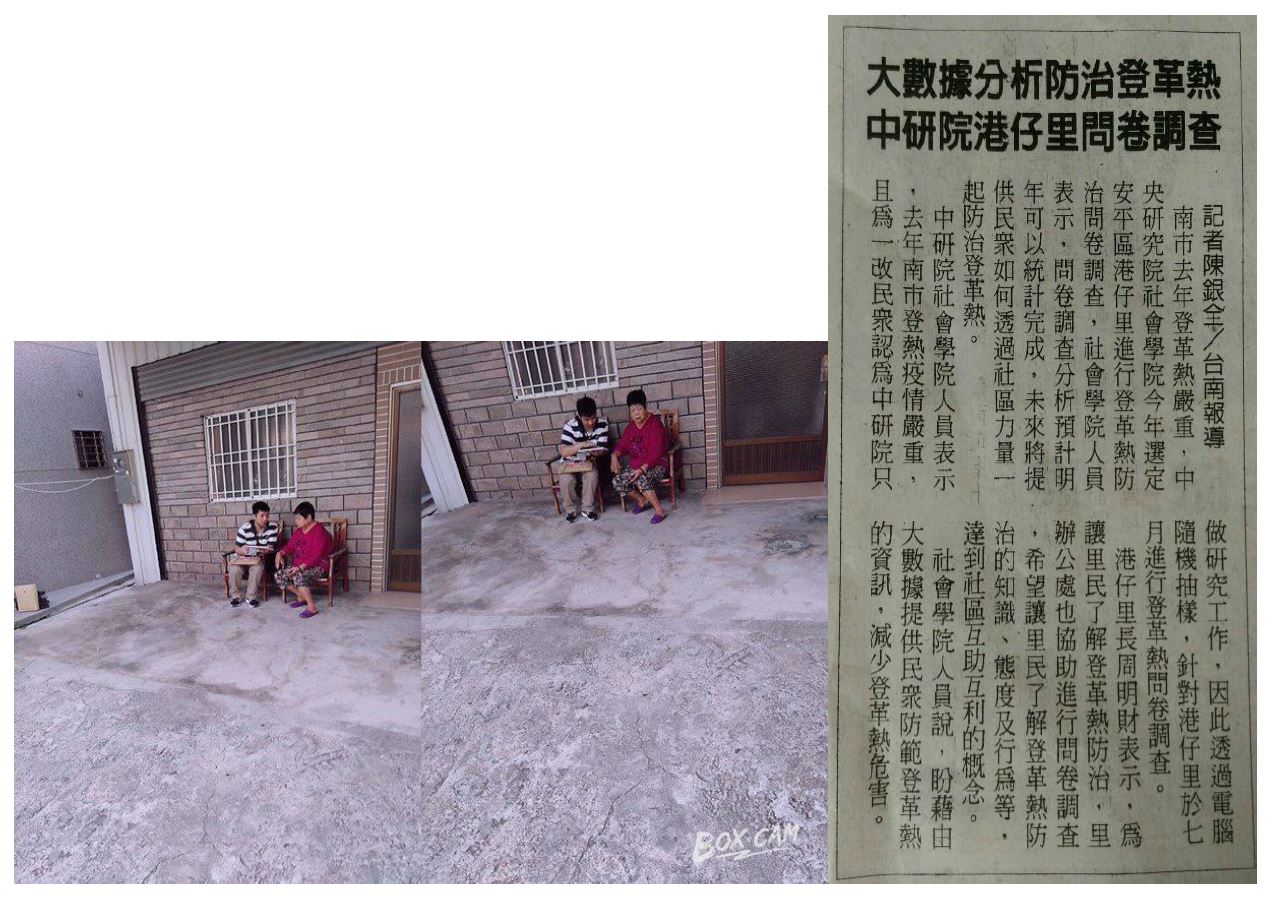逆襲健康資源分配的不平等:社會網絡與地理資訊系統的進擊

(左圖為研究助理至家戶進行施測;右圖為當地報紙剪報)
全球化的發展,儘管促進了科技與經濟的發展,卻也深化了各區域之間的貧富不均與城鄉差距,進而引發許多關於健康與社會資源分配的討論。其中,健康與醫療資源的分配更是國內一個重要且迫切的議題。在既有醫療資源的限制下,本研究試圖利用社會網絡介入方法,改善醫療資源弱勢地區的居民健康成效。以國內相當重視的登革熱傳染與防疫為例,本研究檢視不同社會網絡傳散方式對於社區居民防疫態度與行為的影響。研究結果發現,隨機指派的傳散方式相較於由鄰長擔任傳散種子的方式有較高的實驗參與情況,顯示較高意願協助傳遞防疫相關知識與活動。研究結果冀望能對南台灣地區當地的社區環境做出實質的貢獻。
Understanding whom in the community network to target with the relevant health knowledge is so far unclear and under debate. This research aims to investigate the effects of health intervention using different social network targeting methods. We recruited participants for delivery of the Dengue Fever knowledge from the Gangzai Village in Tainan, Taiwan. We randomized the 20 neighborhoods, separately for each intervention, to one of the two targeting methods. Findings show that random targeting method increased the redeem rate of mosquito repellent wristbands in the first six days of the experiment compared with high-indegree targeting, which the seeds are the head of the neighborhoods. Study of social network of peer-to-peer influence helps to provide better health intervention, as well as improve population health. This research hope to shed some light on the prevention of dengue fever in those communities with high prevalence rates in Southern Taiwan.